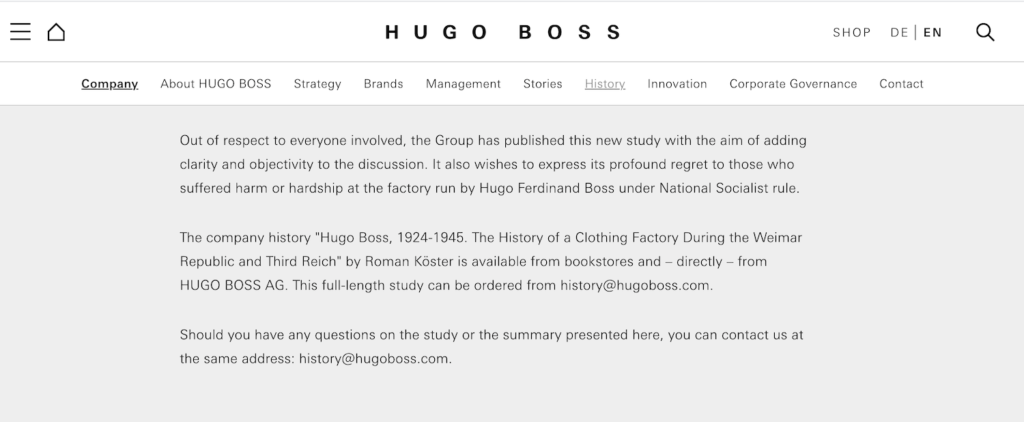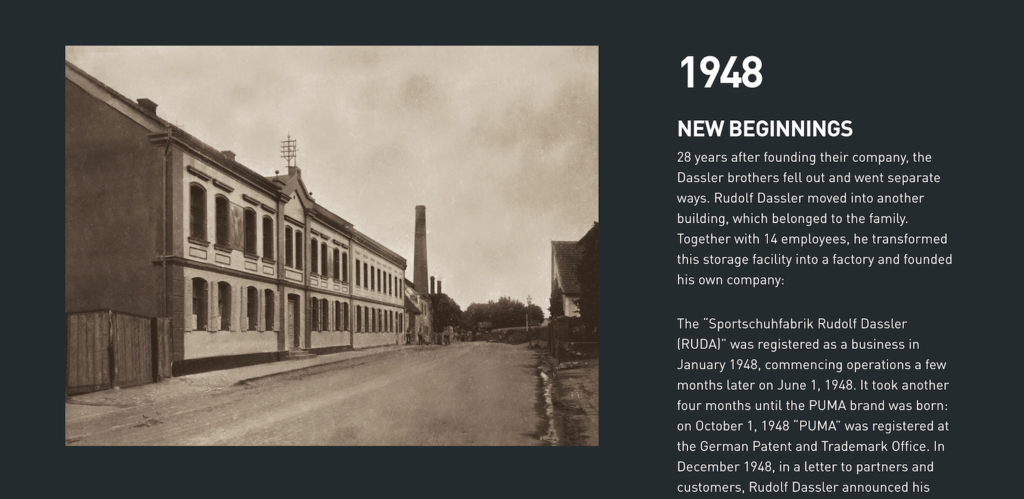“We will never buy a German car.”
As the grandson of holocaust survivors that I vividly remember hearing that statement from my grandparents but hadn’t thought too much about it since then. Now, helping companies understand, evolve, and grow their brands I look back on on that statement with a new perspective and understand it’s an ultimate example of people living out their personal values with the choices they make.
As consumers we vote with our choices and our wallets. We decide where we’re willing to bend for the sake of convenience, price, or desire. We probably have some willful ignorance with some of our favorite or most used brands, afraid to want to know about any ugliness in their history, their business practices, or the potential negative impact they may have on our planet. But if you’re on the brand side, hoping for willful ignorance from your consumers isn’t a sound strategy. So what do you do when your brand may have some skeletons in its closet?
However, he took no action to stop them either.
Hugo Boss started his eponymous clothing brand in 1924. In 1931, he became a member of the Nazi party, the brand supplied uniforms for them, and used forced labor in their factories. Since then the brand has been bought and sold by various groups from various countries. Despite the brand’s growth, mainstream success, and visibility across sports and fashion, the brand heritage remains and those early ties to the Nazis weren’t going to magically disappear. It was covered in the press and would have been a ripe candidate for being cancelled if social media was a major force when the spotlight was on the brand. But Hugo Boss faced their history. In 2011 they commissioned a study on the history of the brand titled “Hugo Boss, 1924-1945. The History of a Clothing Factory During the Weimar Republic and Third Reich.” And while any study of an entity commissioned by that same entity has to be looked at somewhat skeptically, the study doesn’t completely try to dispute its ties with conclusions such as “Hugo F. Boss was evidently not directly involved in such incidents of maltreatment, but he also failed to put a stop to them. As such we can only repeat that the behavior towards the forced laborers was at times harsh and involved coercion…” As a brand, Hugo Boss knew this is a black cloud that would follow them, even if the company today is far removed from what it once was. But they took control of the narrative, address it without trying to bury it deep on their website, and made the information they found public and available (you can even request a copy of their full study directly from them).

But Hugo Boss isn’t the only brand of German origin with ties to Nazis. So have other brands taken the same approach? Two of the biggest sports brands with German origins, Adidas and Puma, have ties to the Nazis through their founders. The Dassler Brothers, Adi and Rudolph famously had a falling out with Rudolph leaving the company that would become Adidas to form Puma. And like Hugo Boss, the level of support for the Nazi party isn’t entirely clear and we with time gone by we don’t have the full context of the moment. But you can still put the words “Nazi” and the brand names in the same sentence and its’ not outlandish. But unlike Hugo Boss, neither Adidas or Puma addresses any of this about their history on the website.


Their histories pre-World War 2 are glossed over without really much of a reference. Almost like the companies didn’t exist before then. They take a more of a “let’s not bring this up if nobody else is” approach.
Does this impact these brand today?
Has any of this really affected their business? Probably not. Most people don’t associate any of these brands with their founders or think of their origins when shopping for a suit or a pair of sneakers. So which approach is better? I believe it’s always better to take these things head on and acknowledge the reality of the past, understand the gravity, be transparent about the actions you’re taking, and have the actions be significant. The past may not define what you are as a brand today but the way you address it determines if your brand values are just words or are demonstrated in practice. When facing these situations you should not be thinking about the masses, you should be thinking about one person who cares about their choices and how they perceive your brand. Because the strongest brands know that sometimes you’re just as much defined by what you don’t do than what you do.
Additional reading on the history of these companies:
Vice – The Nazi Sibling Rivalry That Divided a Town and Created Modern Sportswear